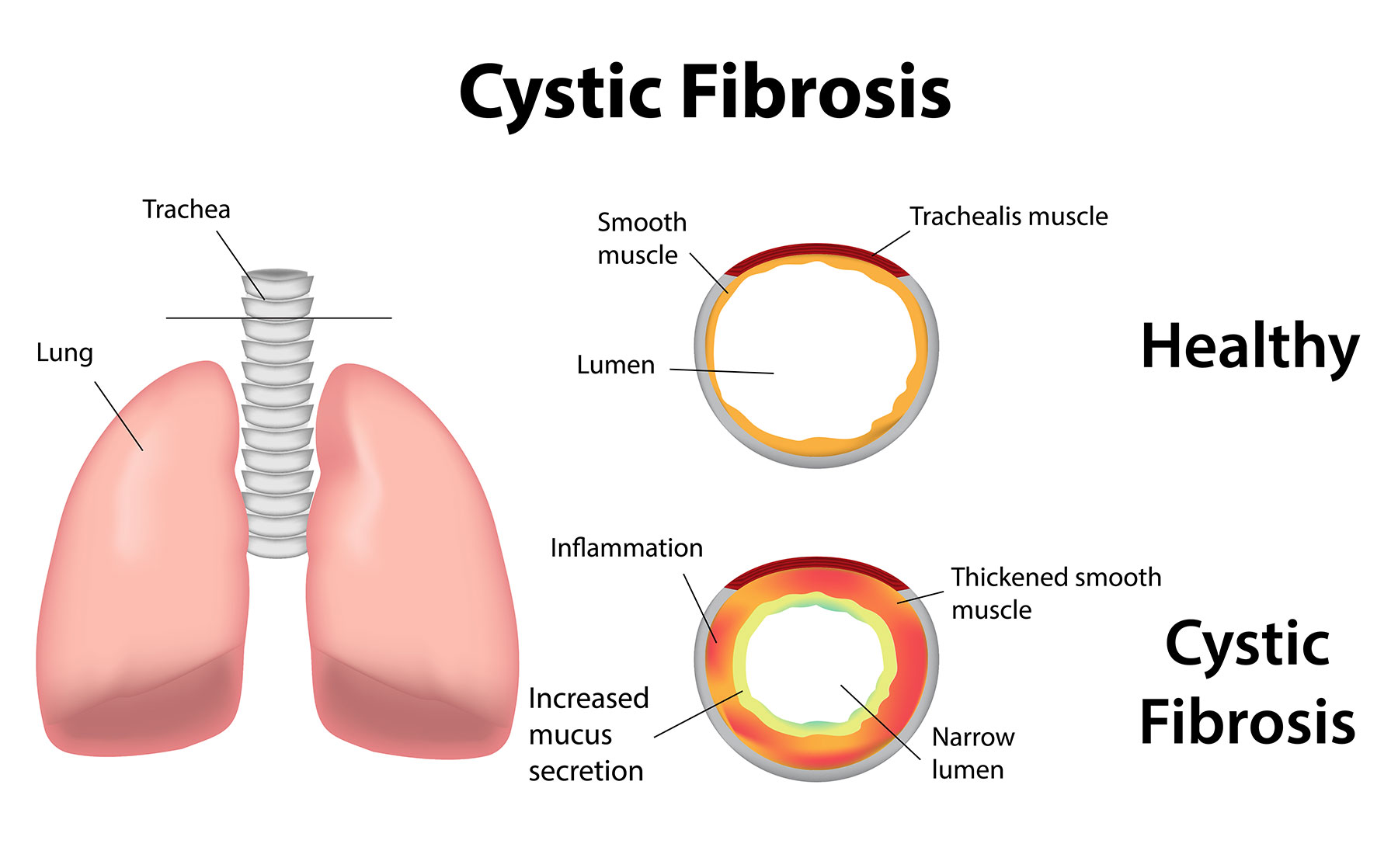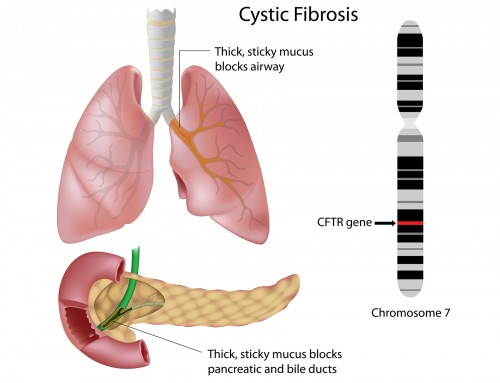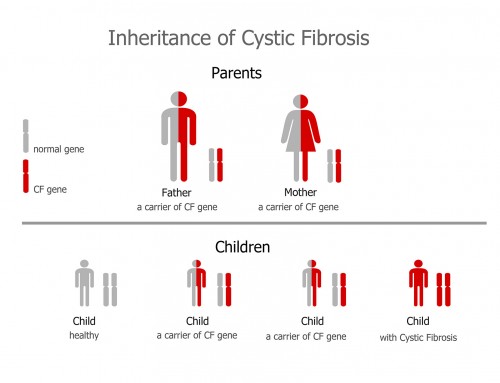What are the signs and symptoms of Cystic Fibrosis?
Cystic fibrosis is an inherited disease that affects epithelial cells in the respiratory, digestive and male reproductive systems. Affected people produce abnormally thick mucus that can cause airway obstruction, digestion and fertility problems. The signs and symptoms can vary among affected individuals.
Respiratory System
People who have cystic fibrosis produce thick and sticky mucus that accumulates in their airways. This can cause obstructive lung diseases and chronic infections. Some have recurrent respiratory system inflammation and may experience sinusitis, bronchitis or pneumonia, eventually leading to progressive lung damage or respiratory failure.
Digestive System
Accumulation of thick mucus can obstruct the ducts of the pancreas, which blocks digestive enzymes from travelling from the pancreas to the intestines to help with digestion. Pancreatitis (inflammation of the pancreas) may develop. Some affected people may have meconium ileus (blockage of the small intestine) that develops shortly after birth. These digestive problems can lead to lack of nutrition, weight loss, and poor growth and development. Diabetes may also develop as a result of cystic fibrosis. As abnormal accumulation of digestive enzymes begins to break down pancreatic tissue over time, the production of insulin (a hormone that helps to regulate blood sugar levels) is reduced, leading to cystic fibrosis-related diabetes mellitus (CFRDM).
Reproductive System
Most affected males with cystic fibrosis have CBAVD (congenital bilateral absence of the vas deferens), a condition where the vas deferens (tubes for carrying the sperm) are blocked by mucus buildup, resulting in a mal-developed vas deferens. Males with CBAVD are infertile unless assisted reproductive technologies are used. Females with cystic fibrosis may suffer from reduced fertility or complications in pregnancy due to blockage in the cervix.
Other Signs and Symptoms
People with cystic fibrosis produce salty tasting sweat, therefore the body loses large amount of salt upon sweating. Profuse sweating can upset the balance of minerals in the body and cause health problems such as dehydration, increased heart rate, decreased blood pressure and heat stroke.
References:
Cystic Fibrosis Foundation
Cystic Fibrosis Worldwide
DNA In the News2017-04-06T20:44:10+00:00




